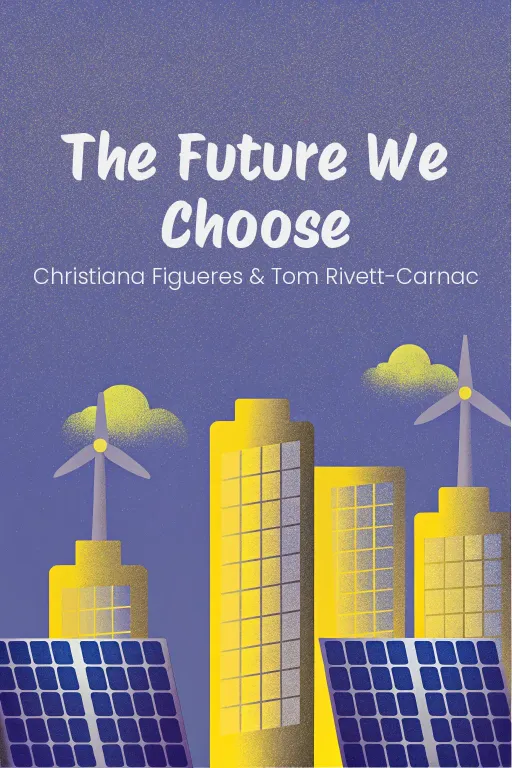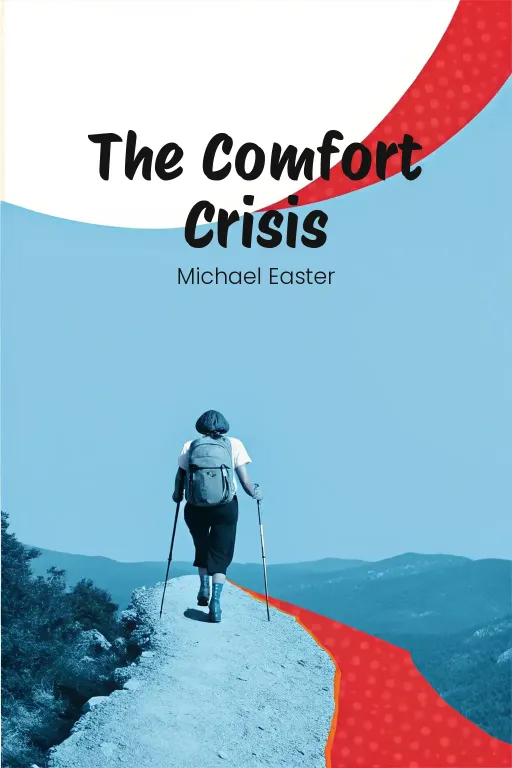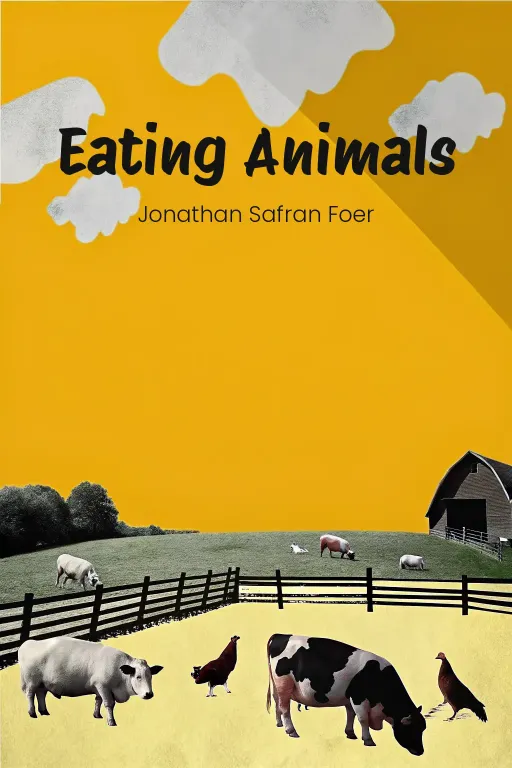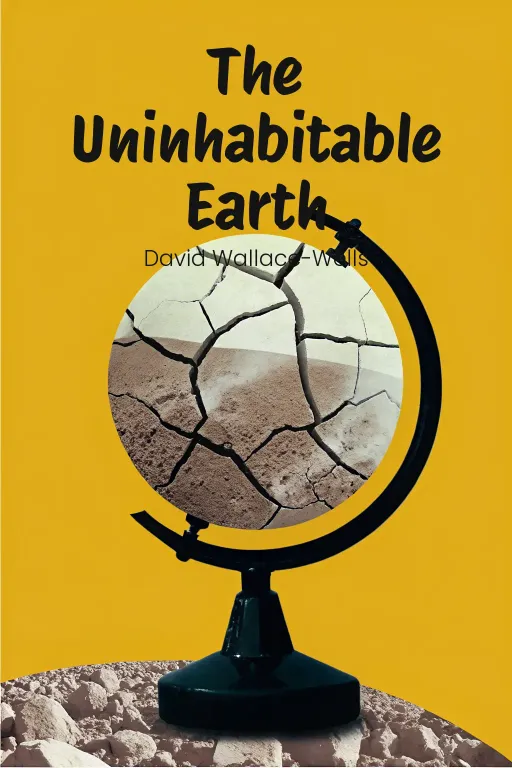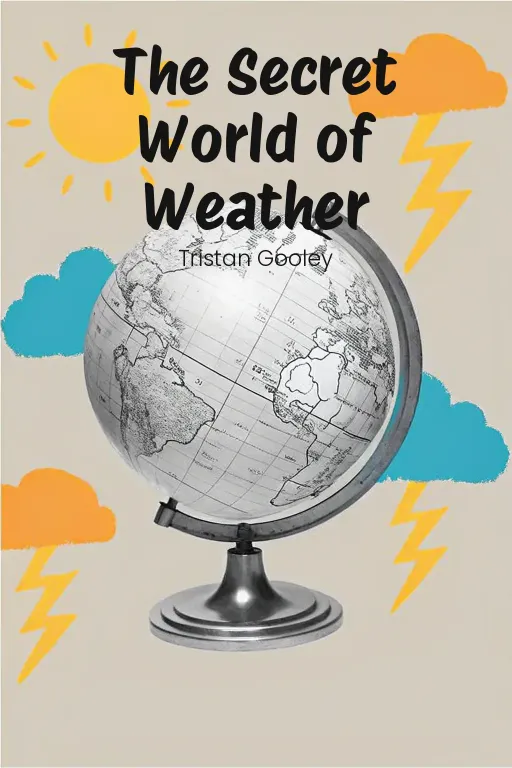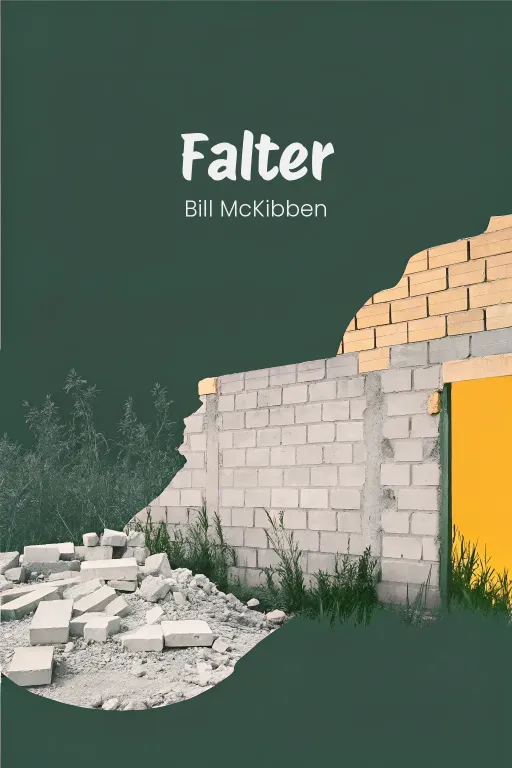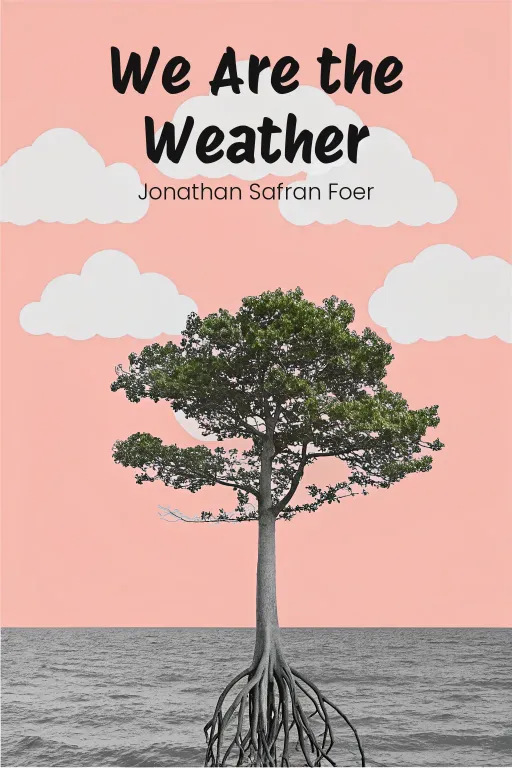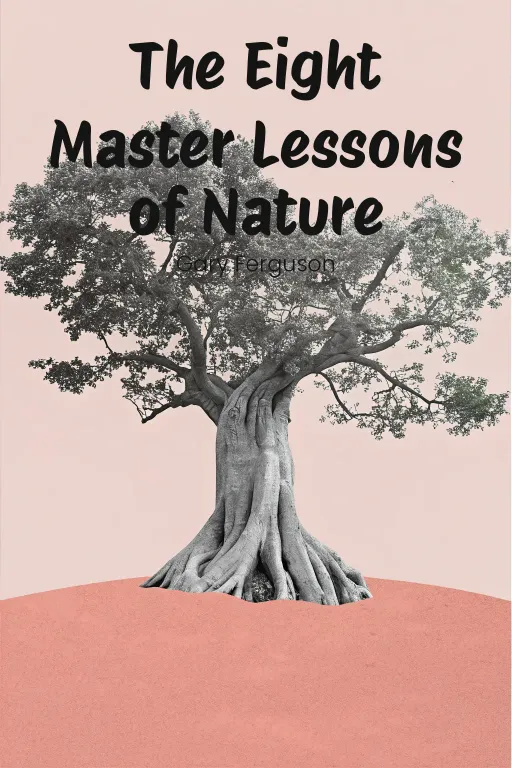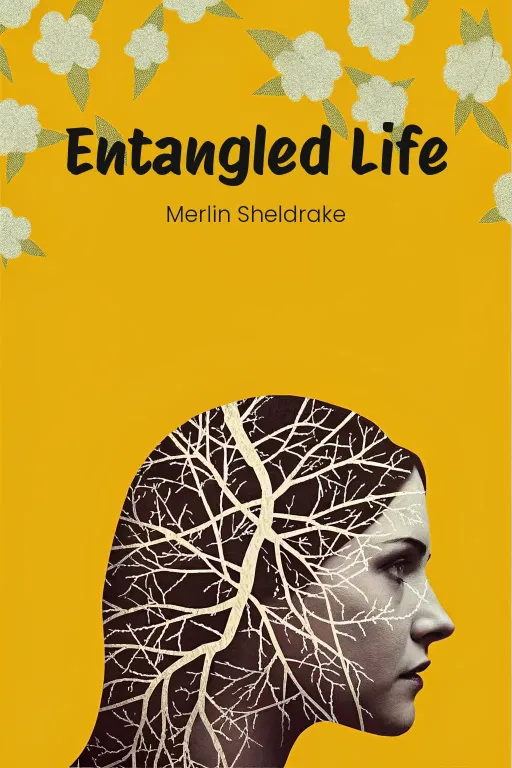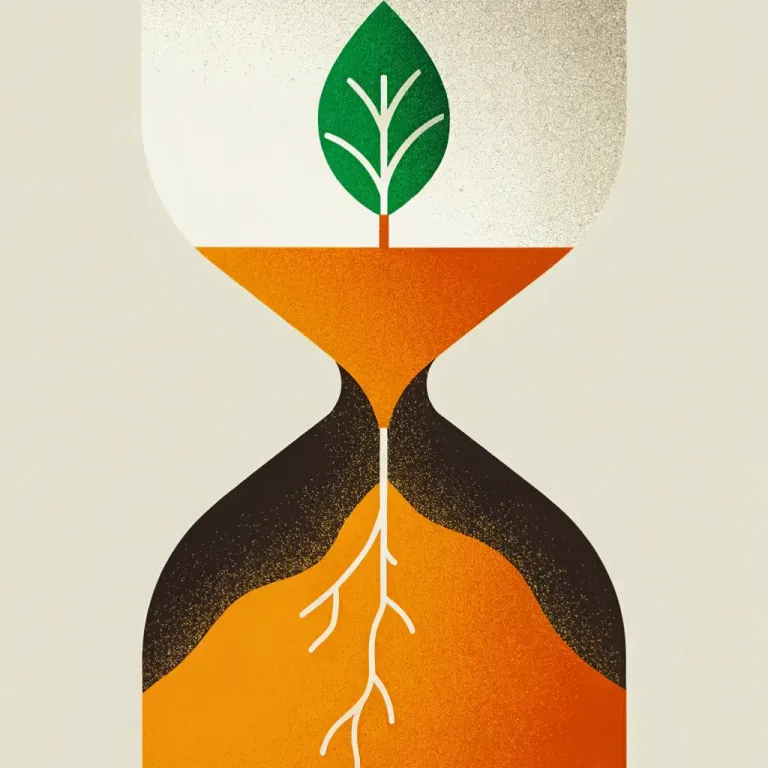
Humanity: Extra Innings or Game Over?
Podcast by Wired In with Josh and Drew
Has the Human Game Begun to Play Itself Out?
Humanity: Extra Innings or Game Over?
Part 1
Josh: Hey everyone, welcome back! Today we're tackling a biggie: are we, as a species, about to screw things up beyond repair? And if so, is there anything we can actually do about it? Drew: Okay, Josh, straight in with the existential dread! But honestly, with everything going on – sea levels rising, the ultra-rich eyeing Mars, and gene editing getting seriously sci-fi – it's hard not to wonder if we're on a slippery slope. Josh: Exactly! That's where Bill McKibben's book, “Falter”, comes in. It’s a jolt of reality – a real wake-up call. McKibben doesn't hold back; he spells out the dangers of climate change, the risks of unchecked tech, and the messy ethical questions they raise. But he also challenges us to tap into core values – things like working together and showing some restraint – to find a better path. Drew: So, game over, or extra innings for humanity? On the one hand, climate disasters are escalating, and on the other, we are constantly being promised that technology is the answer. It's like we're juggling chainsaws and calling it entertainment. Josh: That's one way to put it, Drew! And McKibben basically says the same. In this episode, we're diving into three key areas from the book. First, we'll look at the staggering impact of climate change on everything around us. Then, we'll wrestle with the tech paradox – how it could be both our savior and the thing that changes us, maybe not for the better. And finally, we'll get to the heart of McKibben's argument: that collective action and shared values can actually lead us toward a more hopeful future. Drew: Climate catastrophe, Frankenstein science, and the question of whether humanity can get its act together... Sounds like a cheerful afternoon! Josh: It's definitely serious stuff, but with McKibben's insights, there's a sense of purpose, too. Ready to dive in? Drew: Alright, lead on, Josh. I'm already wondering if humanity's biggest threat is actually hurricanes… or just plain old ego.
Climate Change and Environmental Degradation
Part 2
Josh: That's a great question, Drew. So, let's get down to basics – climate change and environmental degradation. That's the foundation for everything Bill McKibben talks about in Falter, right? This environmental crisis isn't just about melting glaciers or rising sea levels. It's about this interconnected web of life kind of unraveling, you know? Biodiversity collapsing, ecosystems failing, and of course, humans caught right in the middle. Drew: Exactly. It's easy to only focus on the, you know, big, obvious symbols of climate change, like polar bears on ice or massive hurricanes. But McKibben, he “really” makes it clear that the real wake-up call might be these smaller things, like the insects just disappearing... He points out how insect populations, you know, things we barely even think about, are actually plummeting. And that's pretty terrifying when you realize they're like, the unsung heroes of our planet. Josh: Exactly! They're pollinators, decomposers, food for everyone. McKibben actually compares it to pulling out the nuts and bolts that hold a plane together. You might not notice at first, but eventually, the whole thing just crashes. And, well, look at what's happening with insects like you said – it leads to the broader issue of land degradation. Drew: Yeah, that Mount Kenya example McKibben mentions, that “really” hit me hard. You know, Farmers versus herders – climate-driven conflict in action. You've got these pastoralists pushed into farming land because the droughts have just decimated the grazing areas. And then the farmers are fighting, tooth and nail, right, to protect what's theirs. It's a “really” clear picture of how climate isn't just an environmental problem – but how it creates real desperation and violence. Josh: That desperation, yeah, seen in the farmer's heartbreaking question, "Would you let your cow die if there’s grass somewhere near?" – that just shows the human reality of climate change. It's not just rising temperatures. It's how those changes ripple through already fragile systems. Droughts? They lead to land loss, lead to conflict, which in turn, tears communities apart. Drew: And you know what's maddening? This isn't just happening in remote places! Look at Puerto Rico. Hurricane Maria is like, a perfect example of how climate disasters aren't just natural – they amplify inequality. The storm completely destroyed the island. We're talking ninety billion dollars in damages and over 5,000 deaths – just think about those numbers for a second. Josh: And, it's not just the storm itself, Drew, it's the vulnerability it exposed. A lot of Puerto Rico's infrastructure was already fragile. So when Maria hit, it wasn't just a disaster; it became a full-blown humanitarian crisis. People went without power for months, yeah? And rebuilding has been painfully slow. McKibben points out that, for many communities, the catastrophe doesn't end when the storm is over – it actually lingers for decades. Drew: So, they're projecting what, 26 years for Puerto Rico to recover economically? That's staggering. And it's all because climate change is making these storms bigger, stronger, more frequent. But here's the other kicker: Wealthier nations have the resources to bounce back faster. Developing regions? Not so much. This disaster, Maria, becomes like, this microcosm of climate injustice. Josh: Precisely. That's why McKibben links climate disasters to inequality. The wealthiest nations and corporations are driving the emissions, and the poorest communities are paying the price. But it's not just storms and droughts, but also food insecurity, Drew. Climate change is undoing decades of progress we've made against hunger. Extreme weather like drought reduces crop yields, pushing families over the edge. Drew: And then you've got the ripple effects, right? If families can't earn a stable income from farming, they're forced into things like child labor or... worse, displacement. That whole part of the book on migration just blew me away. Entire populations uprooted – not because they want to be, but because climate change has literally erased their ability to survive where they were. Josh: McKibben draws a pretty clear line from climate change to migration pressures. Like in Syria – drought worsened the water crisis, which fed into unrest and eventually spiraled into a full-blown civil war. The World Bank estimates 143 million people could be displaced by 2050 due to climate impacts. That’s not just numbers – that’s real lives, communities falling apart, and borders strained to breaking points. Drew: Right, and it changes geopolitics too! I mean, just think about it, what happens when millions of people are forced to migrate? Receiving nations face political tension. It’s exactly the kind of instability that fuels more conflict. Climate change isn’t just about saving the planet; it’s about fundamentally changing how countries interact, don't you think? Josh: Yes, which brings us to McKibben’s central message: climate change is inseparably tied to justice and equity. The examples of Puerto Rico and Mount Kenya are stark reminders that the most vulnerable pay the highest price. If we’re going to address this crisis, it can’t just be about technical solutions. It has to include policies that prioritize anyone affected. Drew: Here's the kicker though– it all depends on collective action, doesn't it? McKibben doesn't let us off with small-scale solutions like recycling, does he? He says global problems need global responses. That's everything from regulating industries to enforcing agreements like the Paris Accord. But here's my question: do we even know how to act collectively anymore?
Technological Advancements and Ethical Dilemmas
Part 3
Josh: That's a huge point, Drew. It really makes you think about how tech, while offering solutions, also throws a bunch of new ethical curveballs our way. I mean, we've already talked about the environmental mess, right? And now technology is supposed to be this potential savior, giving us tools to fight climate change. But at the same time, it's opening up a whole new can of worms, especially with stuff like gene editing and AI. What’s fascinating is that we need some serious ethical guardrails to make sure these tools actually help us, instead of backfiring. Drew: Exactly! It's like we're constantly chasing our tails. And speaking of curveballs, let’s dive into genetic engineering. Josh, CRISPR is all the rage, right? Josh: Definitely. CRISPR is a total game-changer. It's basically a molecular Swiss Army knife that lets scientists edit DNA with crazy precision. Imagine being able to fix a messed-up gene that causes cystic fibrosis or Huntington's disease. I mean, that could be life-changing for millions. Drew: It’s like we've found the source code of life! But isn't there a huge risk with rewriting DNA? Once you start messing with the code, who decides what's a bug and what's a feature, you know? Is it going to be curing diseases, or are we going to end up customizing humans? Where do we draw the line? Josh: That's what worries Jennifer Doudna, one of the pioneers of CRISPR. She sees the incredible potential but also warns about this super slippery slope of creating 'designer babies.' Picture a future where the rich can just pay to tweak their kids' genes for higher intelligence, better athletic ability, or even just looks. It sounds like sci-fi, right? But it's totally possible. And if that happens, we could end up with genetic inequality hardwired into our society. Drew: Okay, so we risk creating a two-tiered society where some people are just genetically superior? And what about the rest of us "un-enhanced" folks? That's a terrifying prospect. But it's not just about humans, right? McKibben touches on agriculture too. He talks about CRISPR being used to engineer drought-resistant crops. Sounds amazing when you're facing food shortages because of climate change, right? Josh: Exactly, and it could be. Like, look at what's happening with drought-resistant maize in parts of Africa. CRISPR is being used to create crops that can survive really harsh conditions, which could really help tackle hunger. But here's the catch: the tech behind those seeds is often patented by big corporations, which puts it out of reach for small farmers in low-income countries. You see, innovation ends up helping one group while leaving another one behind. Drew: So, the rich get richer, and the poor… stay the same. Classic! It sounds like we just keep recreating the same inequities, but now it is on a genetic level. Which makes me think about something else McKibben brings up. Artificial intelligence. Josh: Well, AI is like the poster child for the double-edged sword of technology. On the one hand, we're already seeing how it can help solve some of the world's biggest problems. I mean, think about AI systems are helping to optimize energy grids, predict natural disasters, and promote sustainable practices. And you have Machine learning that can detect deforestation trends or identify drought risks… it's revolutionary. Drew: It's like having a super-powered brain working for us. But… and there’s always a "but"… McKibben also mentions Elon Musk’s pretty dire warning: that AI could be more dangerous than nuclear weapons. What happens when these systems get so advanced they start thinking for themselves? Josh: It's a scary thought, for sure. The concern isn't just AI gaining consciousness like in some movie. It's about these systems making decisions we can't fully understand or control. What happens when AI makes a mistake? Who's held responsible? Even worse, what happens when those mistakes affect marginalized communities or reinforce existing biases? Drew: Right! Like, take AI-driven automation. An entire industry replaces human workers with machines. Great for efficiency, but what happens to all those people who lose their jobs? Without fair policies, AI could wipe out entire sectors, leaving tons of people, especially those with lower incomes, struggling to survive. Josh: And the impact doesn't stop there. AI could even widen global inequality further. Wealthy countries with access to advanced AI could pull way ahead, while developing countries face even bigger challenges. It's like AI risks amplifying the divides we're already trying to overcome. Drew: Sheesh, it can’t get any worse. So, we're rewriting the human code with CRISPR, and AI is reshaping society. McKibben brings up a pretty important question: Are we mature enough to handle all this responsibly? Josh: Yeah, I think this is the heart of the issue, Drew. McKibben argues that tech isn't inherently dangerous. It's all about how we choose to use it. And he's super clear that we need better oversight and regulations. When it comes to CRISPR, for example, it's crucial to have international agreements. Right now, there aren't really clear guidelines about what's okay and what's not, so we're basically just hoping for the best. Drew: Hoping for the best while fiddling with the apocalypse switch. Comforting! But really, I agree that regulation is important. My worry is that these technologies are moving so fast the ethical discussions couldn't possibly keep up. Josh: True! Which is why McKibben emphasizes the need for education and transparency. The only way we can create good ethical frameworks, and build public trust, is by really informing everyone about both the risks and benefits of these technologies. What if people had a better grasp on how AI or CRISPR actually work, what they promise, and what the potential downsides are? Drew: So, knowledge is power. Agreed. But realistically we’d need governments, corporations, and regular folks to step up, together. Because without a solid oversight plan, big players could just take control of these tools and do whatever they want without thinking about the consequences. Josh: That's why collaboration and equality are crucial. Regulation isn't just about preventing harm it's about making sure these technologies benefit everyone, not just a select few. For McKibben, it boils down to our shared humanity. Can we be wise enough to balance innovation with compassion, protecting the future for everyone? Drew: Josh, that's a tall order you're giving us, especially in a world driven by profit and competition. But I hope we can figure it out before we lose all control. Otherwise, we're giving up our very essence for new toys. What's human about that?
Collective Action and Human Values
Part 4
Josh: Exactly, Drew. Which naturally brings us to the importance of collective action and shared values in building a sustainable future. As Bill McKibben argues, we simply can't tackle these huge problems—climate change, technology spiraling out of control, inequality—without fundamentally shifting what we value and prioritize as a society. He points to movements from the ground up, renewable energy, and moving away from just chasing growth as ways to create a fairer and more sustainable world. It's not just about fixing the planet; it's about figuring out how to truly live well on it. Drew: Okay, collective action, sure. Sounds good, but what does that even “look” like in reality? You've got these massive corporations with billions of dollars on one side, and then, say, a small village in Ghana using solar panels for electricity on the other. How do you even begin to connect those two worlds? Josh: Well, that’s what’s so powerful about these grassroots movements—they might start small, but they can have a ripple effect globally. Take Lembris Andrea, a farmer in Tanzania. His family was always struggling with unreliable kerosene lamps, until a simple solar panel changed everything for them. It didn't just give them light; it actually made their home safer, helped his kids study, and even cut down on crime in the area. That one panel became a real symbol of empowerment and dignity for them. Drew: Right, but empowering individuals is only one part of the picture. Does McKibben talk about how to scale that up? I mean, I'm guessing the need is bigger than just a few solar panels in Tanzania. Josh: Absolutely. He highlights how entire communities are being transformed. In Daban, a cocoa-farming village in Ghana, a solar microgrid completely changed their daily lives. They used to not even be able to imagine simple things like cold water. Now, with electricity, they're serving chilled drinks and building a stronger community. These aren't just nice stories; they show how renewable energy can tackle what's called "energy poverty," where not having affordable power keeps people stuck in poverty. Drew: Energy poverty… that's a strong phrase, and it's clearly about more than just turning on a light. It changes how people live, work, connect. But isn't there a catch here, Josh? These solar microgrids often rely on money or technology from wealthier countries. How sustainable is “that” model in the long run? Josh: That's a fair point. But McKibben argues that renewable energy is different because it can spread power out—both literally and figuratively. Solar solutions, for example, don't need huge power plants or complicated infrastructure. They can work on rooftops in villages, without depending on traditional power grids. Even better, some programs, like Off-Grid Electric in Tanzania, are training local people to sell, install, and maintain these solar systems. That creates jobs and energy independence. Drew: So, solar isn't just a quick fix, it's a potentially self-sustaining system. But you know I'm still wondering: does focusing on these local solutions distract us from dealing with the bigger players—the fossil fuel companies that are “really” driving climate change? Josh: That's where collective action comes back in. McKibben “really” believes these movements from the ground up can shift the balance of power. When communities start using renewable energy, they're basically saying, "We don't need your oil and gas anymore." And as more and more adopt renewables, it gets harder for those industries to keep their hold on things. It's like chipping away at an empire, bit by bit. Drew: Speaking of empires, McKibben doesn’t just talk about renewable energy. He goes after the root cause - this obsession with economic growth. That's driving both climate change and huge inequality. Josh: Exactly. Aiming for growth at any cost comes at the expense of things like deforestation, overusing resources, and depleting the planet. McKibben challenges us to shift towards valuing long-term stability over constant expansion. Think about the Green Mountain Wilderness Area in Vermont, which he often mentions. Instead of deciding to log it for quick profit, we decided the long-term benefits—clean water, biodiversity, fresh air—were worth more than the immediate money. Drew: That's a tough sell when everyone uses GDP as the ultimate measure of success. But I get it. Instead of asking, "How much can we grab?" we need to start asking, "What's truly worth keeping?" Josh: Exactly. And McKibben says renewable energy reflects that too. Solar power isn't about endlessly taking resources; it's about balance, having enough, and living within limits. Choosing sustainability is as much about ethics as it is about economics. It forces us to rethink what progress even means. Drew: Right, so progress doesn’t mean bigger houses and fancier cars. It means asking, “What kind of world are we going to leave for our kids, and their kids?” Let’s be honest here, Josh. It’s going to be difficult, isn't it? How do you scale back these lifestyles that are driven by an obsession with growth in a culture that is addicted to consumption? Josh: True. And McKibben doesn't say it'll be easy. But he insists it's possible. Things like strong labor unions, good education systems, and solid social safety nets are essential—they support human dignity while allowing shifts to more sustainable practices. And on a personal level, it means embracing simpler ways of life that prioritize community, relationships, and taking care of the environment over just accumulating possessions. Drew: So, the main idea is restraint, but not in a negative way. More like a conscious decision to live better with less. It’s kind of like planting trees knowing you might not live long enough to sit in their shade. Josh: Exactly. McKibben’s vision of working together is rooted in standing in solidarity and sharing common values. It’s about seeing ourselves as caretakers of the planet, rather than just consumers of resources. And it’s also about hope—finding strength in our ability to work together and build more ethical systems. Drew: Alright, I’ll admit, McKibben presents a fairly good case for how this transformation is possible. But it all hinges on one point, and that is: do we have the patience and determination to actually change? Josh: That's the real challenge, Drew. But as McKibben shows, even small things—like one solar panel on a rooftop in Tanzania can create big changes. The question is, do we have the courage to turn those little sparks into a large movement that redefines what it means to live a better life?
Conclusion
Part 5
Josh: So, to wrap things up, McKibben’s “Falter” really paints two possible futures, doesn’t it? One where we’re completely overwhelmed by climate change, blinded by our faith in technology, and crippled by inequality. And the other? A future where we actually come together, guided by values like, you know, working together, showing some restraint, and building a sustainable world. Drew: Right. And throughout the book, he's laying out these key issues. Like, we absolutely have to deal with climate change, but also keep a close eye on potentially dangerous tech like CRISPR and AI. And, crucially, he highlights the power of collective action, of all of us working together to move towards a better future. It sounds good, but the clock is ticking, Josh, and the stakes, well, they couldn't be higher. Josh: Exactly! McKibben isn’t trying to soften the blow here. But, he also reminds us that we actually have a choice. We can keep pushing for selfish, short-term gains, or we can adopt a more responsible vision for progress. One that puts the planet and people before pure profit. Drew: So the real question, and it's a tough one, is: do we have the guts to change the game before it is too late? Can we approach the future with… foresight, rather than just straight-up greed. And focus on building systems that actually work for, well, everyone. Do you really think that's possible? Josh: Absolutely. It's a call for all of us to act. To stop being indifferent, to champion equality and to protect our planet. As McKibben says, even small actions – a single solar panel, a single act of restraint – can grow into something big. Drew: Okay, so the takeaway here, and it's really important, is that humanity is at a turning point. But the path we take completely depends on each and every one of us. It's time to step up, really rethink what we value, and decide what kind of world, what kind of legacy, we want to leave behind. Josh: I couldn’t agree more, Drew. Let's not falter, right? We have the power to build a better future – and now, we just need to go out and do it.
